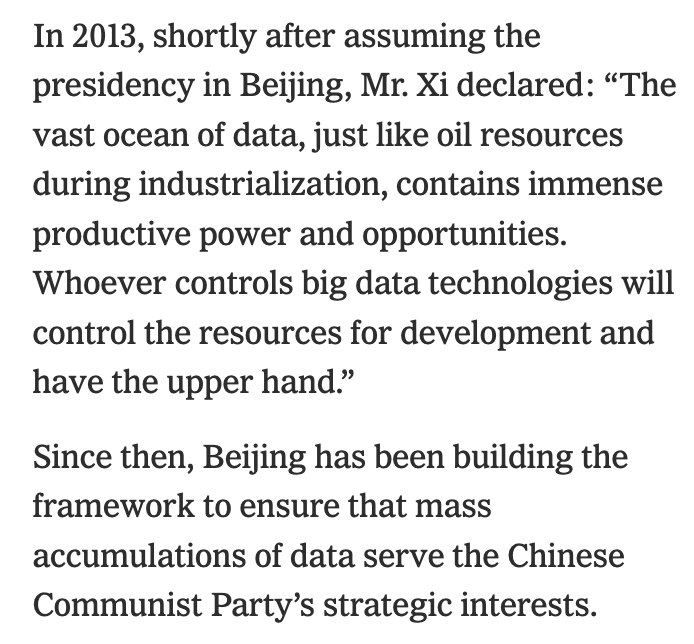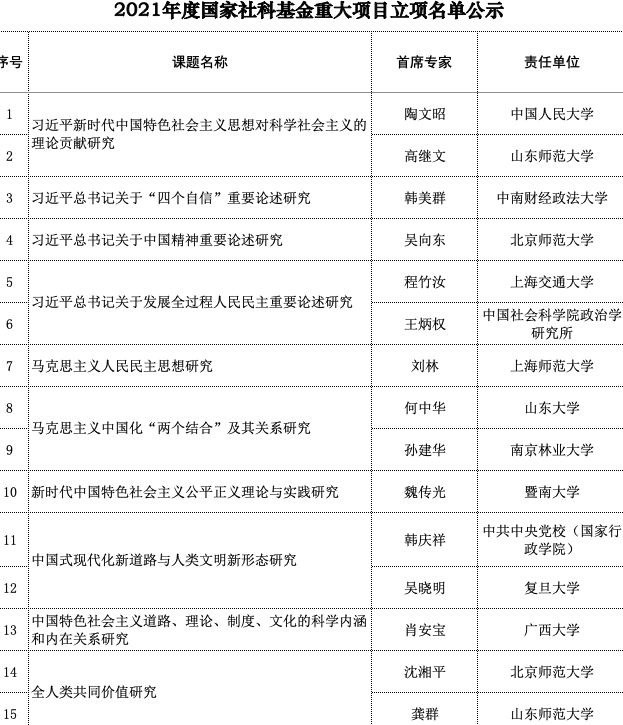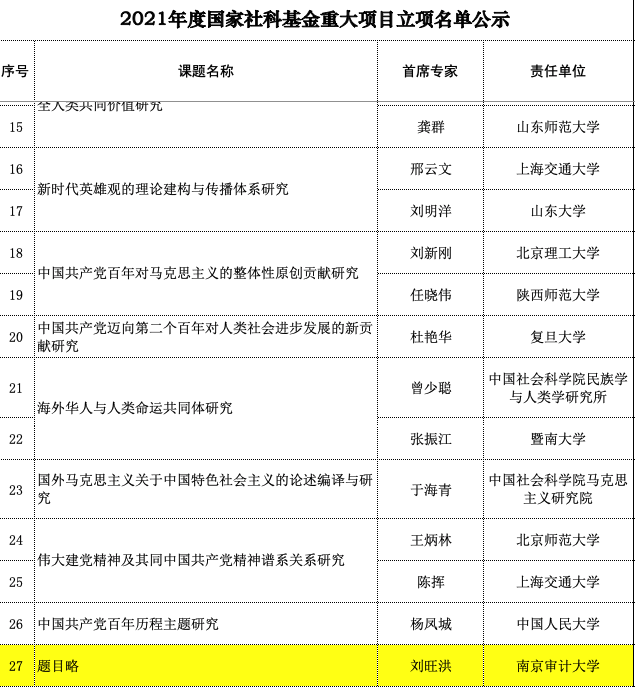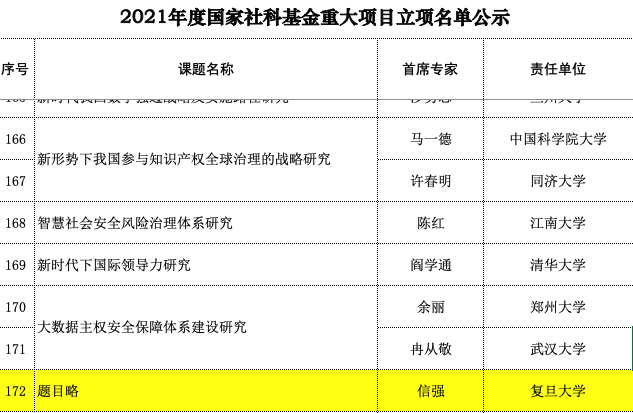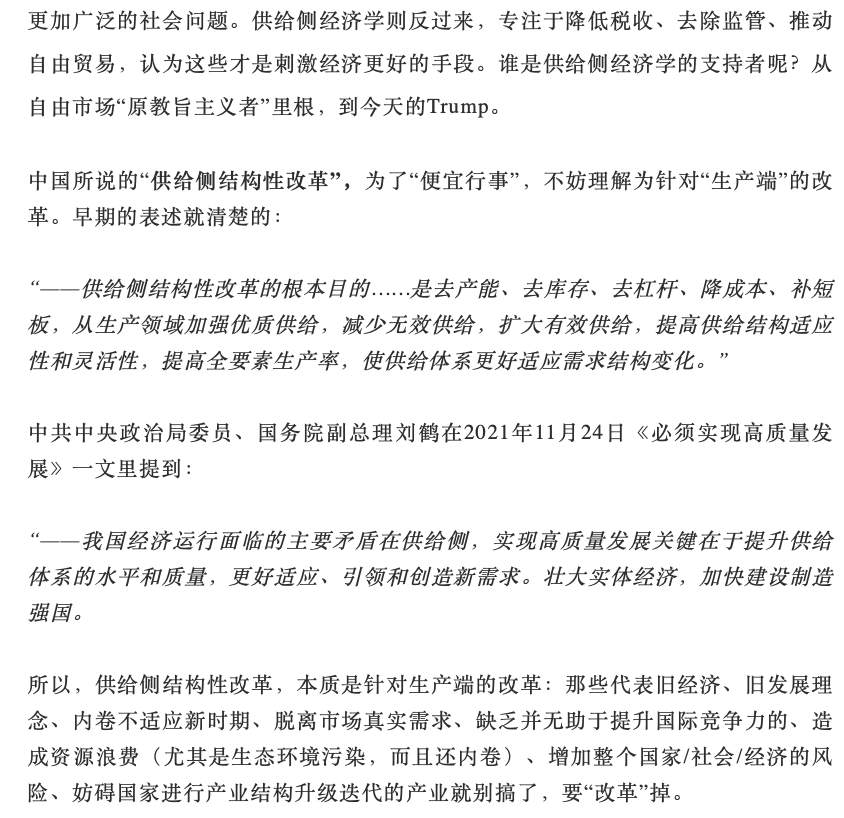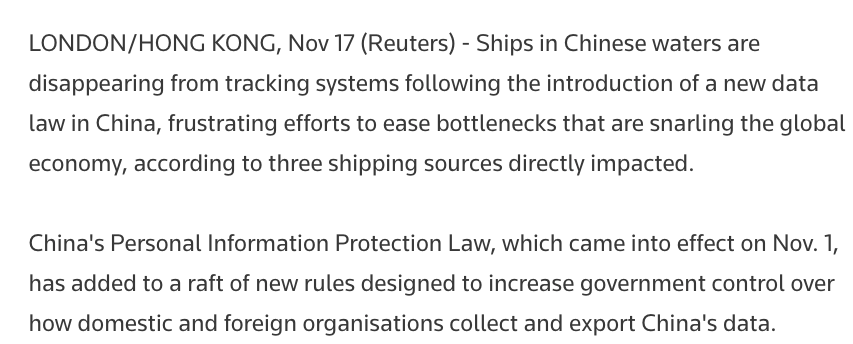
China's WTO Ambassador Li Chenggang published an op-ed on the 20th anniversary of China's accession to the WTO in the People's Daily yesterday.
Titled "Playing a colorful movement on the WTO stage", it confirmed several of my observations over the years:
paper.people.com.cn/rmrb/html/2021…
Titled "Playing a colorful movement on the WTO stage", it confirmed several of my observations over the years:
paper.people.com.cn/rmrb/html/2021…
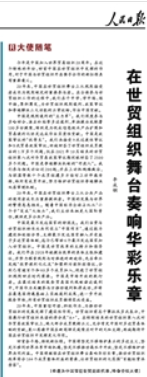
1. The overall assessment, as noted by Amb. Li at the beginning of the essay, is that China has grown from a "rule-taker" to a "rule-maker". This is an observation I first made 11 years ago in a paper with the same title, available on @SSRN:
ssrn.com/abstract=19417….

ssrn.com/abstract=19417….
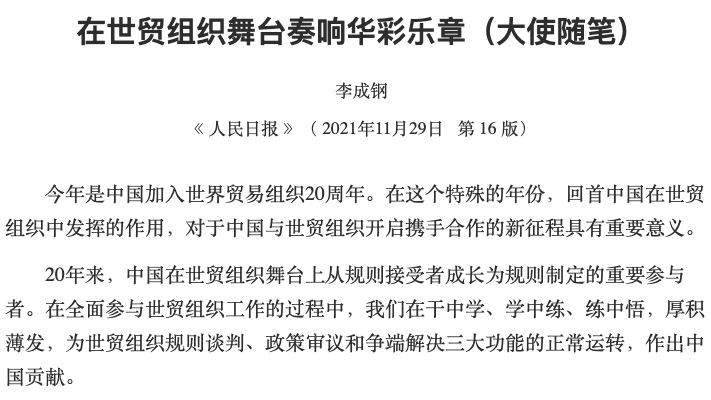
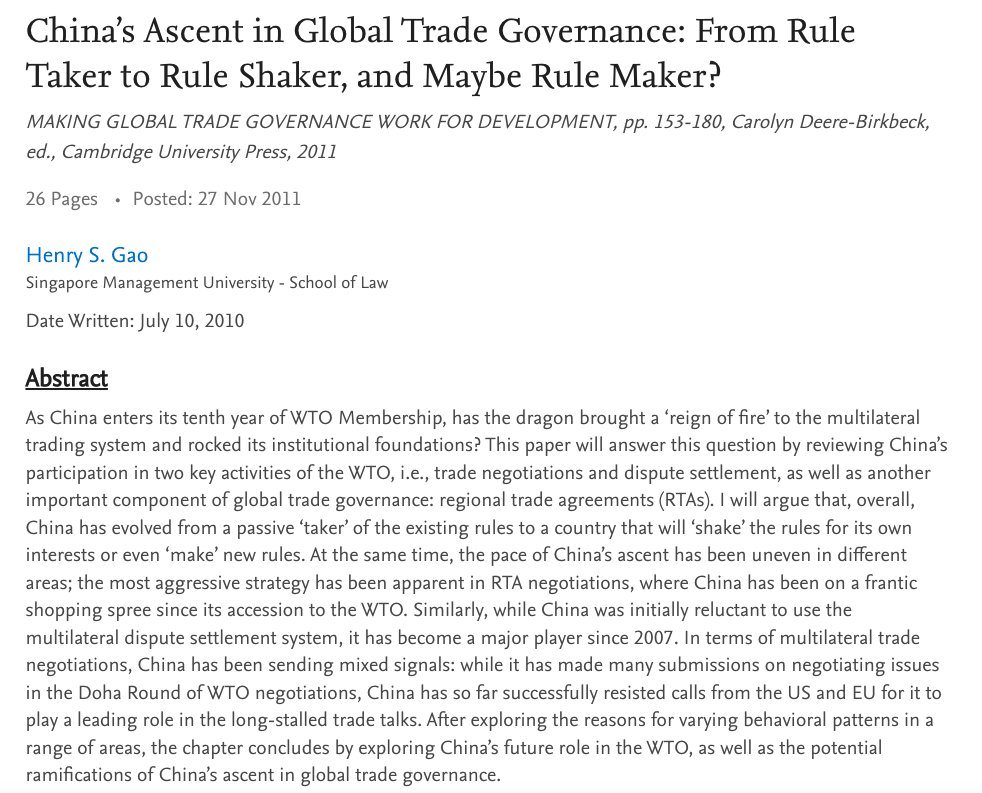
More specifically, the essay notes that China is the "main force" of rules negotiation, "Top Students" in Policy Review, and the "night watchman" of the dispute settlement mechanism, which were all explored in my 2010 paper. 
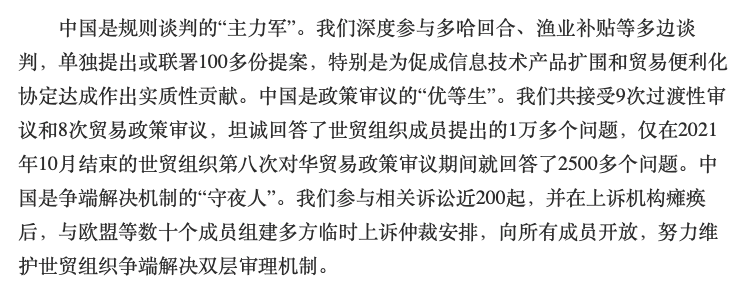
2. The essay also notes that "China has grown from a user of public goods to an important provider on the WTO stage", supported by examples such as the China Programme for LDC accession, as well as China's "leading role in WTO reform". Yes, you read it right, China is now saying 
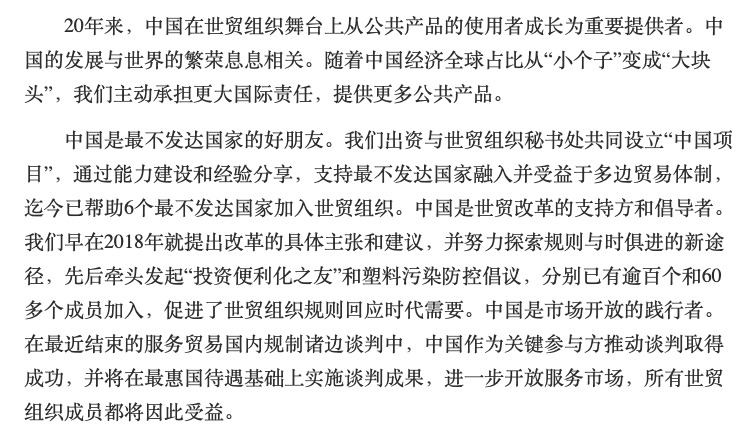
that it plays a leading role in WTO reform negotiations, as I pointed out in another recent paper:
Henry Gao, China’s Changing Perspective on the WTO: From Aspiration, Assimilation to Alienation. Available at SSRN: ssrn.com/abstract=39585…
Henry Gao, China’s Changing Perspective on the WTO: From Aspiration, Assimilation to Alienation. Available at SSRN: ssrn.com/abstract=39585…

such a claim also confirms the broader point in my paper above that China now sees itself as the affirmer of WTO rules and reform negotiations. 

3. In summary, Amb Li notes, "Over the past 20 years, China has kept its promises and acted positively, and has played a constructive role in promoting the development of the WTO." In support, he refers to the "overwhelming praise of China by most WTO Members in the recent TPR", 
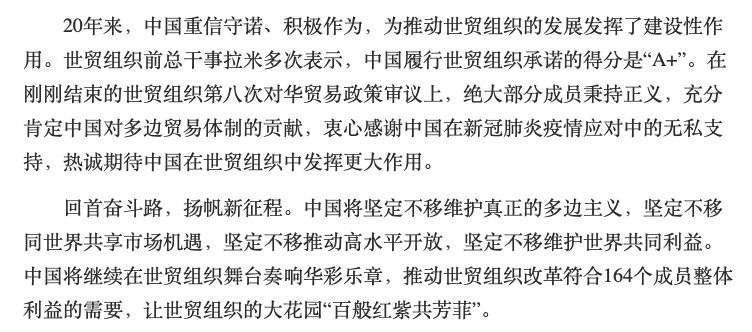
Yet, the story as reported in @fbermingham's live reporting of the TPR seems to indicate otherwise, which is summarized in the discussion on China's "alienation" from WTO rules and the reactions that followed in my paper.

https://twitter.com/fbermingham/status/1450806628731719688
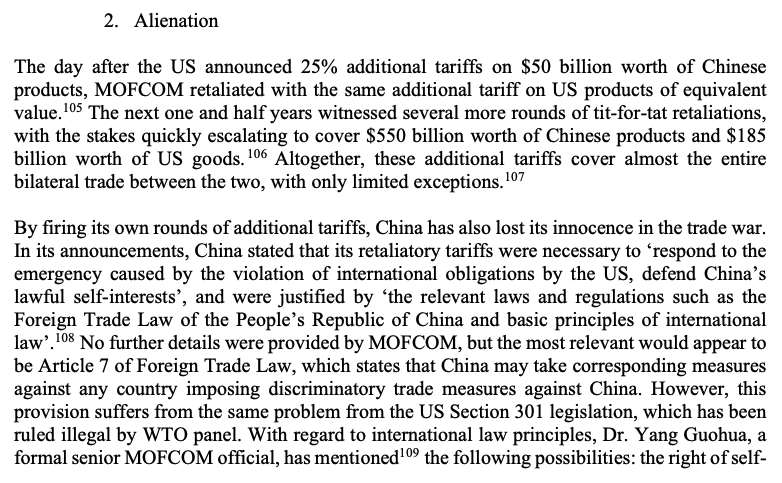
4. Li's essay is capped with an upbeat note:
China will continue to play colorful music on the WTO stage, and to promote WTO reform in line with the needs of the overall interests of 164 Members, so that the large garden of the WTO will be "red and purple in every way".
China will continue to play colorful music on the WTO stage, and to promote WTO reform in line with the needs of the overall interests of 164 Members, so that the large garden of the WTO will be "red and purple in every way".

While people may debate whether China is the one playing "colorful music" or "discordant notes", let me finish off this thread, as I did in my paper, with a thought from 3 years ago in this op-ed in the @east_asia_forum: eastasiaforum.org/2018/03/09/bro… 
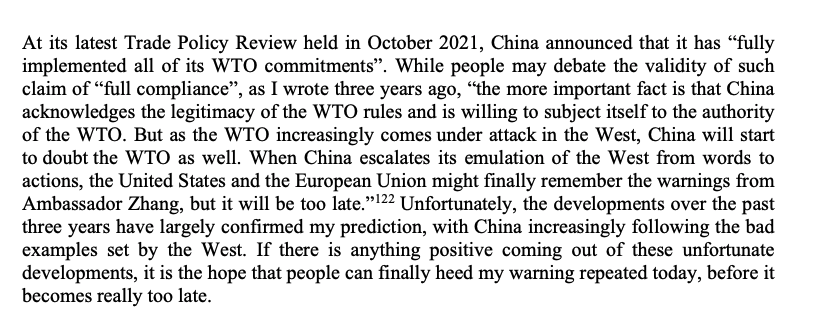
• • •
Missing some Tweet in this thread? You can try to
force a refresh


